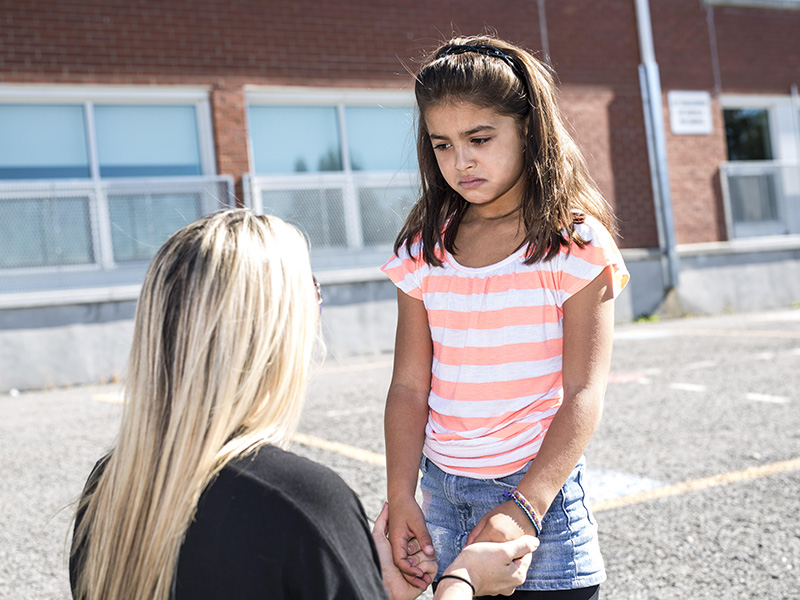Bullying is defined by the American Academy of Pediatrics as unwanted, aggressive behavior among school-aged children that involves a real or perceived difference in power. Bullying can occur during or after school hours, at a friend’s house, or on the internet. Kids bully for a variety of reasons. Some reasons include the need to gain power, to feel a sense of control or importance, and to feel cool or popular.
Effects of bullying
The effects of bullying last beyond the time of torment and can affect the health and well-being of the victim. Any form of bullying can cause physical illness, anxiety, depression, low self-esteem or suicidal thoughts and actions.
Strategies to help your child deal with bullying
There is more than one way to deal with a bully. Your school-ager will need to figure out what works best with help from you. Some options include:
- Suggesting your child ignore the bully; act as if they don’t care and walk away.
- Encouraging your child to make friends with other children. Partner up with a friend on the playground. There is strength in numbers.
- Teaching your child to talk to trusted adults in his life. They may not change the bully’s behaviors, but your child will know they are not alone.
- Being sure your child knows to report the situation to their teacher, school counselor or another trusted adult.
What if your child witnesses bullying?
Bystanders of bullying have the power to be part of the problem (hurtful bystander) or be part of the solution (helpful bystander). Here are some ways your child can become a helpful bystander:
- Tell the bully to stop. If the bully is not getting the attention they are seeking, they may stop.
- Get help from a trusting adult. This supports the victim and will hopefully lead to the end of the bullying.
- Support the victim. Being a friend to someone in need says a lot about your child’s character. Everyone needs a friend.
What if your child is the bully?
Having your child bullied is hard, but having your child be the bully could be harder. There are steps you can take as a parent to turn these behaviors around.
- Be a positive role model. Your child is watching and listening.
- If your child is bullying others, take it seriously. Set firm and consistent limits.
- Use effective, non-physical discipline such as loss of privileges.
- Help your child understand that bullying hurts and there are better ways to get what they want.
- Seek help from teachers or other professionals.
Warning signs of bullying
Some warning signs for children that are being bullied can include:
- Torn, missing or damaged pieces of clothing or other personal belongings
- A child being afraid of going to school or attending school activities
- Taking long “illogical” routes when walking to or from school
- Appearing sad, moody, anxious or depressed when home from school
- Experiencing a loss of appetite or low self-esteem
- Frequent complaints of headaches, stomachaches or other physical problems
- Having frequent bad dreams or trouble sleeping
Some warning signs for children that bully others can include:
- Having a positive attitude toward violence
- Having a strong need to dominate
- Being impulsive, aggressive or easily angered
- Lacking empathy
- Being defiant and aggressive toward adults, including teachers and parents
Learn more
…
Posted In Children's, Family Medicine, Parenting
